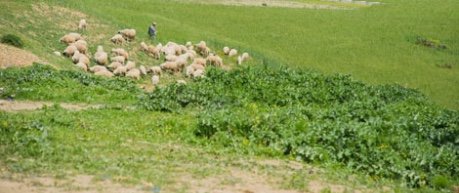Thursday 14th June 2018, 10:00am
A flagship strategy for helping to end hunger while protecting biodiversity is having limited success in low and middle-income countries, a study involving Edinburgh GeoScientists has found.

The combined social and ecological results of increased agricultural intensification are not as positive as expected, scientists have found.
The study, involving Edinburgh scientists, is the first to bring together current knowledge on how the approach - which seeks to increase the productivity or profitability of agricultural land - affects both the environment and human wellbeing in these countries.
Sustainable intensification of agriculture is intended to meet social and ecological commitments as laid out in the UN Sustainable Development Goals and the Paris climate agreement.
Researchers from the university of East Anglia (UEA) and University of Copenhagen led a review of more than 50 previous studies into the human wellbeing and ecosystem outcomes of agricultural intensification.
Overall, they find that agricultural intensification rarely leads to simultaneous positive results for ecosystems and people.
The study was published in Nature Sustainability.
"Intensification of agricultural land, whilst carrying high expectations, may not be a broad solution to ensuring food supplies while seeking to safeguard the sustainability of agriculture into the future. Our research uncovers several elements that limit the social and ecological success of adopting intensive farming, and should serve to inform further research in this area."
Janet Fisher, School of GeoSciences, University of Edinburgh